On the Road Again
As video games grow more diverse, creators are dreaming bigger and bolder about the types of games they’d like to make. One of the more surprising genres to surface as of late is also one of the most heartfelt: the road trip adventure. From Final Fantasy XV and The Big Con to upcoming titles like Open Roads and Season, there’s no better time to hit the open road.
Road 96 sits at the forefront of this budding genre. Developed by French studio DigixArt, the game tasks players with traveling a fictitious, fascist nation in search of freedom and purpose. Its story draws heavy parallels with the Trump-era United States—complete with police brutality, political tyranny, and disillusioned voters. Add in a “procedurally generated” hook that promises a unique road trip for each player, and Road 96 has plenty to offer.
And yet, it isn’t without its potholes—many of which run deep. The game’s strong political bent, while laudable, is held back by a simplistic dialogue system. Its procedural gameplay is true to its name, but serves more as a novelty than something truly groundbreaking. And its characters, many of which are charming and well-written, are undercut by stiff, hit-or-miss voice acting.
Road 96 is worth playing, especially for those open to its rougher edges. It’s certainly a memorable trip, but it could have been an extraordinary one with the right polish.
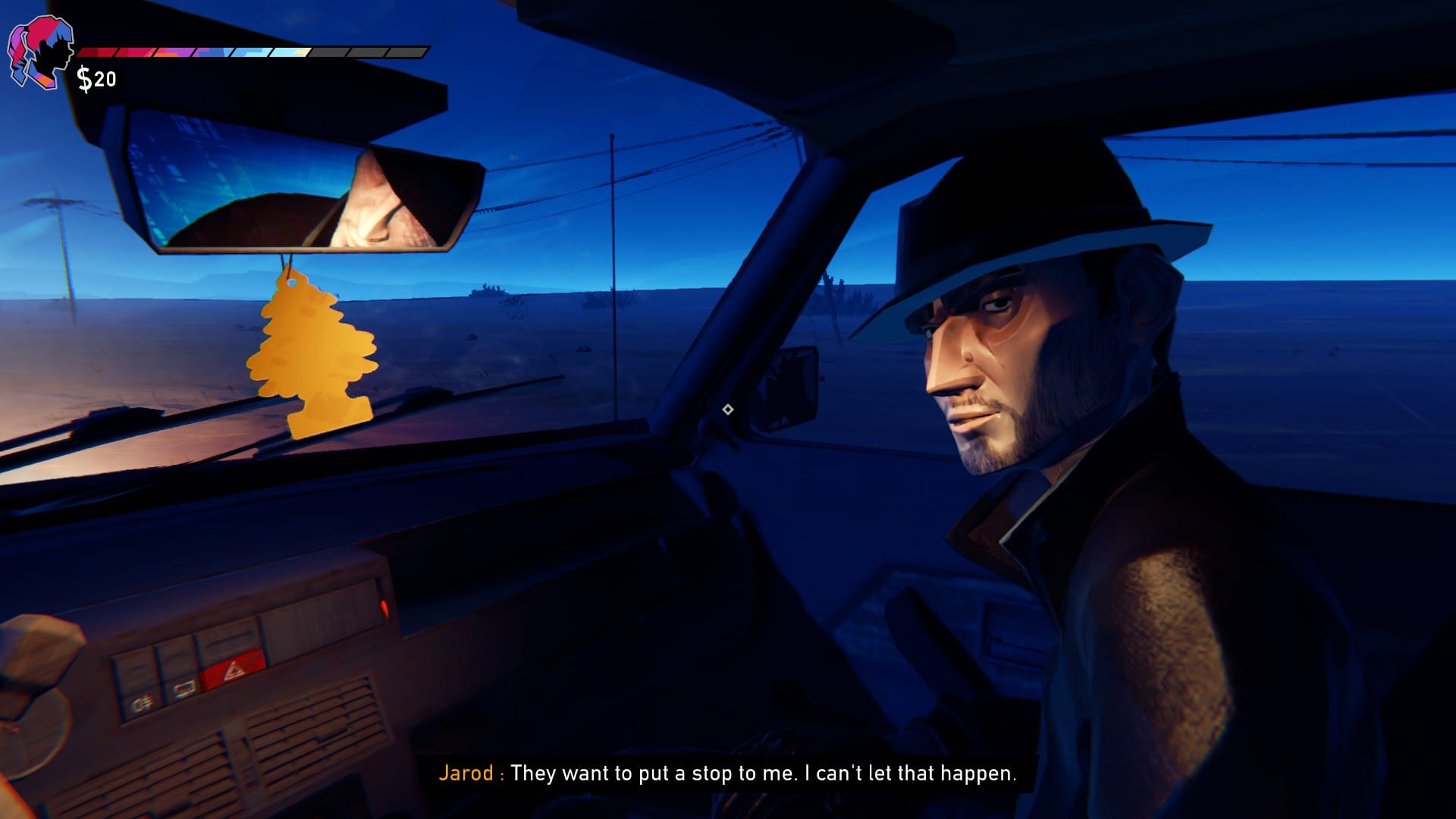
Born to Run
Road 96 puts players in the role of a nameless teen. In your first hour or so, you’ll make your way across the country of Petria, visiting a host of locations and engaging with the locals. From diners to motels, gas stations to trailer parks, each stop in your travels brings you several hundred miles closer to your ultimate goal: the titular Road 96.
For years, Petria has been subjugated to the regime of President Tyrak: an autocrat in everything but name who rules with fear and an iron fist. Following a terrorist bombing in 1986 that resulted in both physical casualties and emotional division, Petria has grown into a militant state. Adults have essentially become indoctrinated, while youth who look to escape are chased down and apprehended by the police.
But only if these teens are caught. The fabled Road 96 has attracted scores of “missing teens” just like you, who are looking to hop the border and have a chance at a fresh life. It won’t be an easy journey—and not everyone will make it—but the reward is well worth the risk.
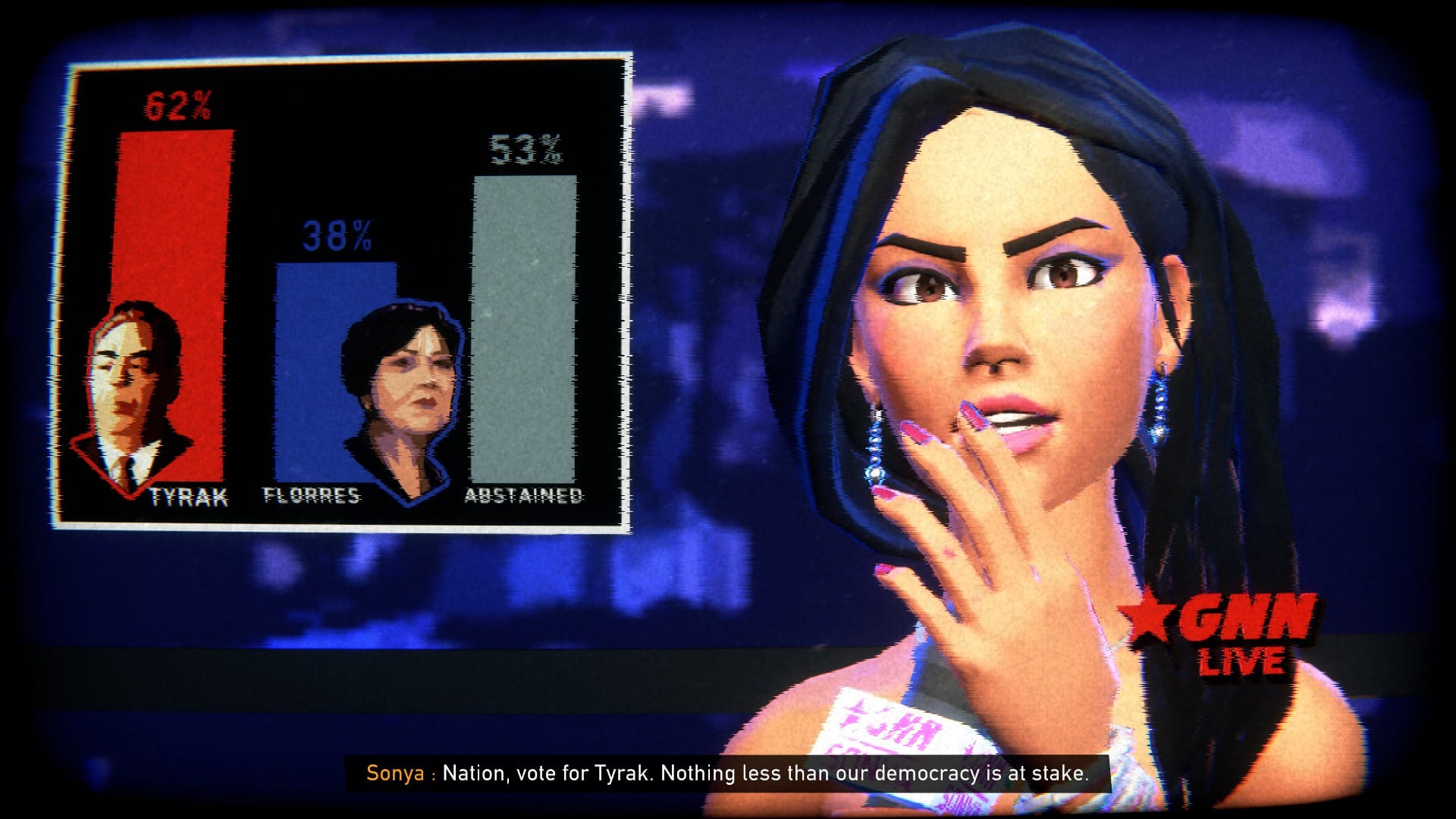
No Country for Old Men
Road 96 isn’t shy about its inspirations. The game pulls from various historical periods and events—from Nazi Germany, to 9/11, to Black Lives Matter and Trump’s U.S.—to propel its narrative forward. Developer DigixArt delivers this story via rapid 10- to 15-minute vignettes, bookended with pulp-like chapter titles (usually named after a hit ‘90s song). The studio cites a quartet of filmmakers as influences—Quentin Tarantino, the Coen Brothers, and Bong Joon-ho—but the muses stretch far and wide.
Fake news. Rock n’ Roll. Neo-noir. It takes a deft hand to juggle so many themes and meld them into a cohesive whole. Yet Road 96 tackles the subject matter with confidence, and mostly manages to make it work—mostly. The game depicts a generational passing of the guard, one in which adults carry their sins, so that youth may carry the future.

Unfortunately, in its fervor to comment on the state of modern politics, Road 96 draws too deep a line in the sand. If you’re young, you’re progressive. If you’re old, you’re impeding progress. And if you attempt to bridge the divide—by voting out the conservative Tyrak for an independent candidate—you’re either a moderate, a fool, or both.
The game doubles down on this thinking with a rudimentary dialogue system that allows players to pick between one of three alignments: protest, vote, or flee. By selecting these options at critical junctures, you can help influence Petria’s political climate—and the game’s ending. Sadly, the options are so clear-cut that I found myself choosing one set path for myself, rather than putting any thought into what I was saying. Telltale’s The Walking Dead, this game is not.
Heavy-handed themes aside, Road 96’s scenes are poignant, funny, endearing, and almost always entertaining.
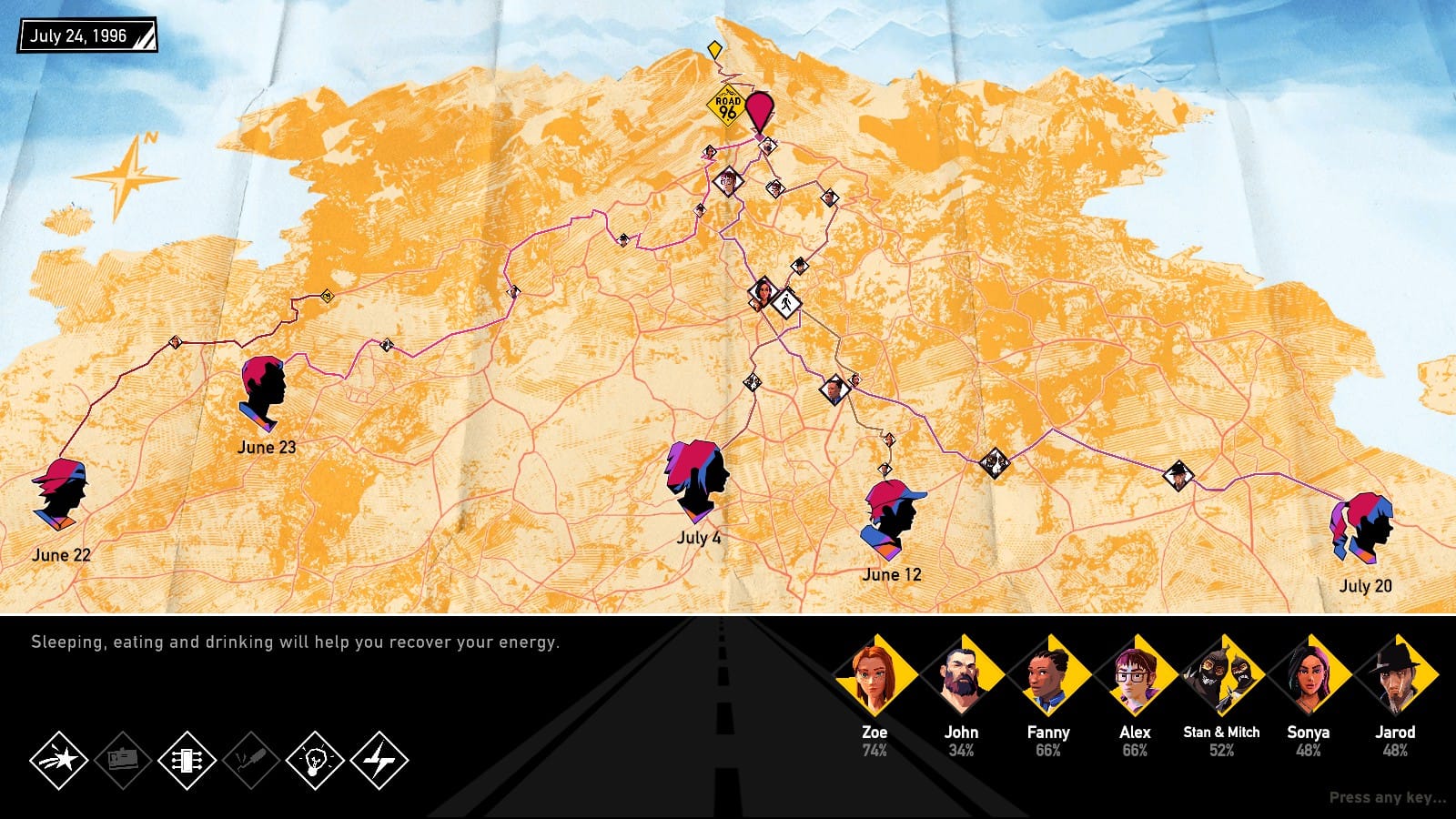
King (or Queen) of the Road
Part of the appeal behind Road 96’s story is its procedural nature. Once you reach Road 96, you’ll have an opportunity to escape Petria for good. Whether you bribe a guard at the border, trudge through the sewers, or stow yourself away in a cargo truck, your character’s journey will come to a close.
However, that’s only the beginning. As the game’s narrator explains, even when one Petrian finds refuge, there are countless others still searching for freedom. After returning to the main menu, you’ll start a new chapter—figuratively and literally—and select a new playable character from a list of missing teens.
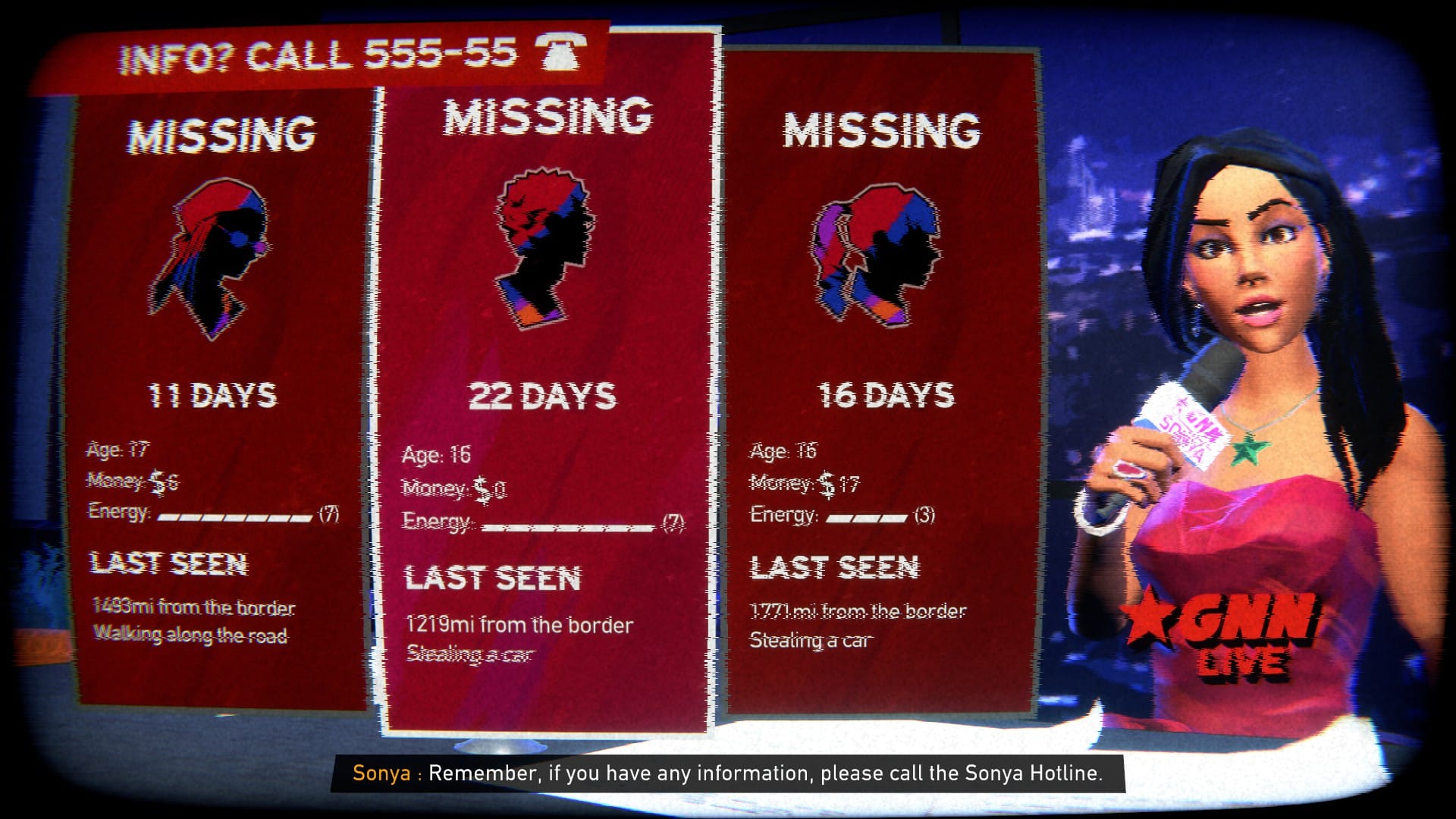
This is where Road 96’s gameplay truly takes shape. Each new character embarks on their own road trip, complete with unique scenes, locales, and characters. One scenario might have you taking on a job at a gas station for some extra bucks. Another might have you weaving through cars on the highway. Another still could have you attending a Burning Man-esque music festival. As you navigate from place to place, you’ll try to fill your belly, conserve your energy, save up funds, and ultimately head to Road 96 for a clean getaway. Falter at any point, and you’ll get taken in by the police, or worse, suffer an untimely death.
The character-hopping structure is a clever way of delivering on the “no road trip is the same” marketing point. The game’s internal algorithm ensures scenarios are shuffled randomly, to the point that no player will have quite the same experience. Add in the light resource management mechanics, and Road 96 wins the award for Most Unlikely Roguelike.
And yet, this roguelike is relatively superficial. The game is so narrative-dependent that each scene can never be truly procedural. The act of experiencing them in a unique order is a fun novelty, but in essence you’ll be experiencing 90% of the game’s story by the time the credits roll. Even if you miss a few scenes, a New Game+ option ensures you can dive back in to catch what you missed.

Constant Companions
Novelty or not, these playthroughs never got stale for me, in large part thanks to Road 96’s strong supporting characters. As you swap between player characters, you’ll cross paths with a recurring cast of personalities, each with their own reasons for traveling the open road.
You have Fanny, a kind-hearted Black cop entrenched in a broken judicial system. There’s John, a once radical protester who has since adopted a quieter way of life. Stan and Mitch are a Thelma & Louise-esque pair of bank robbers, while Alex is a young boy with a knack for computers. Sonya Sanchez is the Laura Ingram of this world, and Jarod is a taxi driver with a lust for blood. Finally, there’s Zoe—a teenage girl set on escaping Petria due to her family ties. (Think a softer Chloe from Life Is Strange.)

Over the course of Road 96’s eight- to 10-hour campaign, you’ll slowly unravel the stories of each of these companions. Before long, you’ll understand their motivations, and start to see their lives intertwine in often surprising ways. I’ll avoid spoilers, but some of the most gratifying moments I had playing the game came during these moving character moments.
While the writing behind these characters is generally strong, I cannot say the same for the voice acting. Performances in Road 96 run the gamut from serviceable (Sonya, Alex, Jarod) to downright horrendous (Fanny, Stan, Mitch). The two exceptions are Zoe and John, both of whom earn every minute of screen time they’re given. Whether I was sharing a laugh with Zoe over a bungled guitar chord, or listening to John’s father-like lectures, I treasured these moments more than anything else in Road 96.

Sights and Sounds
Road 96 may have its bumps in the road, but if there’s one thing I can guarantee about this trip, it’s this: You’re gonna cruise around in style.
The game has an absolutely stellar soundtrack, which spans artists, genres, and influences. From the synthwave pop of Robert Parker, to the folksy melody of Cocoon’s “The Road,” to the soul-infused bop that is “Hit the Road,” Road 96’s soundtrack brings the energy. It’s a sublime work, and the one aspect of the game I have no qualms about recommending in full. If nothing else, give it a listen:
Road 96 fares less well in the visuals department. I encountered plenty of pop-in during my playtime, and found the details on textures to be particularly lacking. In spite of the jank, the game still manages to awe and wow, in large part thanks to some gorgeous lighting during key scenes. It’s not always a looker, but it impresses nevertheless.
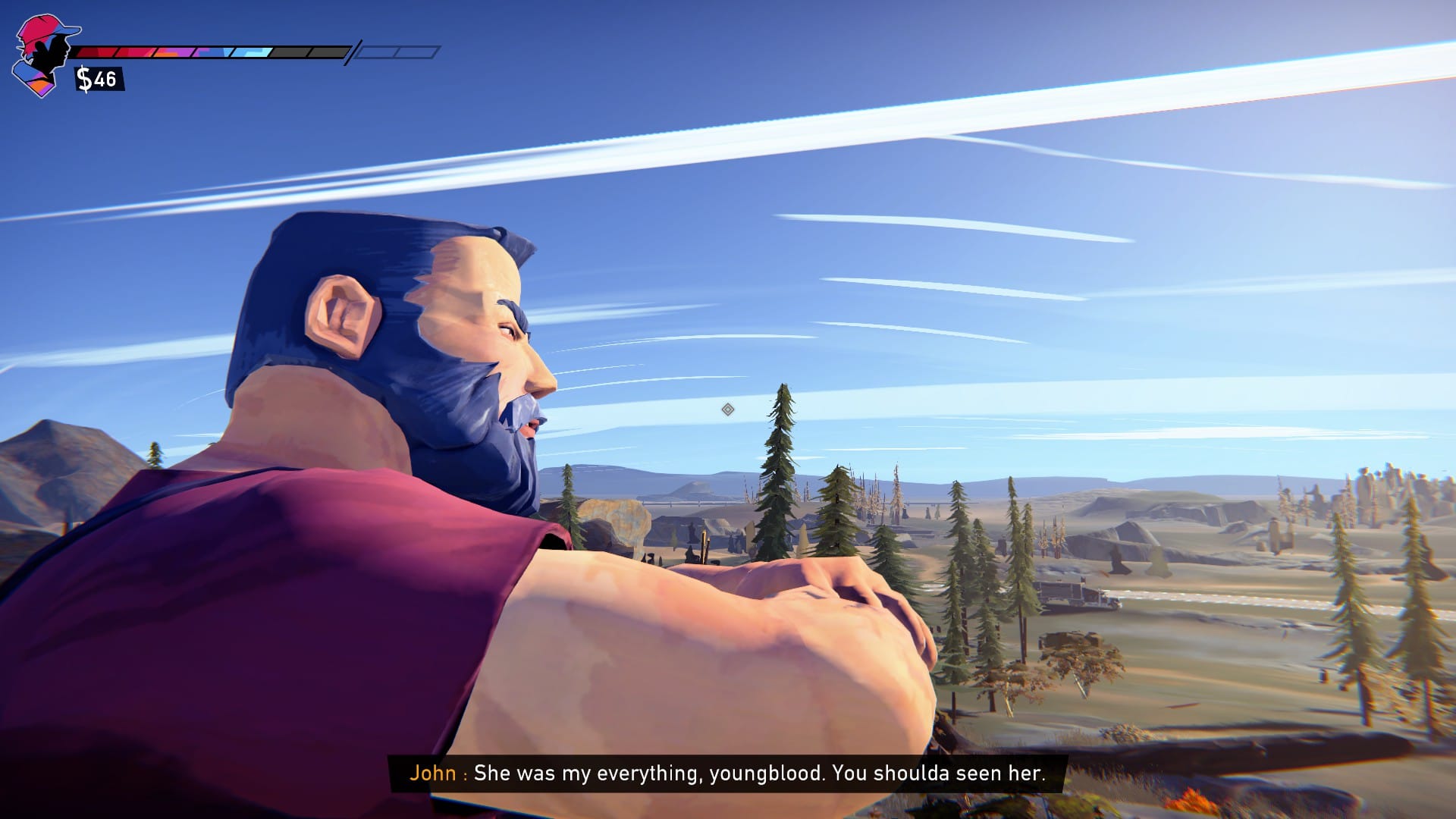
Get Your Kicks on Road 96
Road 96 is flawed yet fascinating. It takes aim at U.S. politics in a way I’ve seen few games tackle, if any. While it’s far from subtle in its approach, the game is sure to generate some valuable conversations among players—and that deserves praise. The game also impresses with its novel storytelling structure, brisk pacing, and smart use of supporting characters.
There are issues. The game’s procedural nature is undercut by a “look, don’t touch” design philosophy. Narrative drives the game forward, and gameplay almost always takes a backseat. The game offers little in the way of difficulty, and the voice acting is so bad, the game would have been better off without voiced lines at all.
And yet, Road 96 is so much more than the sum of its parts. It’s not going to appease all kinds of players, and it certainly won’t win over those it looks to critique, but those who give it a chance will surely warm up to its charm.
Road 96 is a worthy trip, potholes and all.
Score: 7.9/10
Road 96 is available now for PC and Nintendo Switch at an MSRP of $19.96.
*Review code provided by publisher
David is the founder of The Punished Backlog. He has a problem finishing games he starts.
Just beat: Donkey Kong Bananza.
Working on: Hollow Knight: Silksong.
Can't wait for: Metroid Prime 4: Beyond.
Follow David on Twitter at @David_Silbert to keep up to date with all things The Punished Backlog.


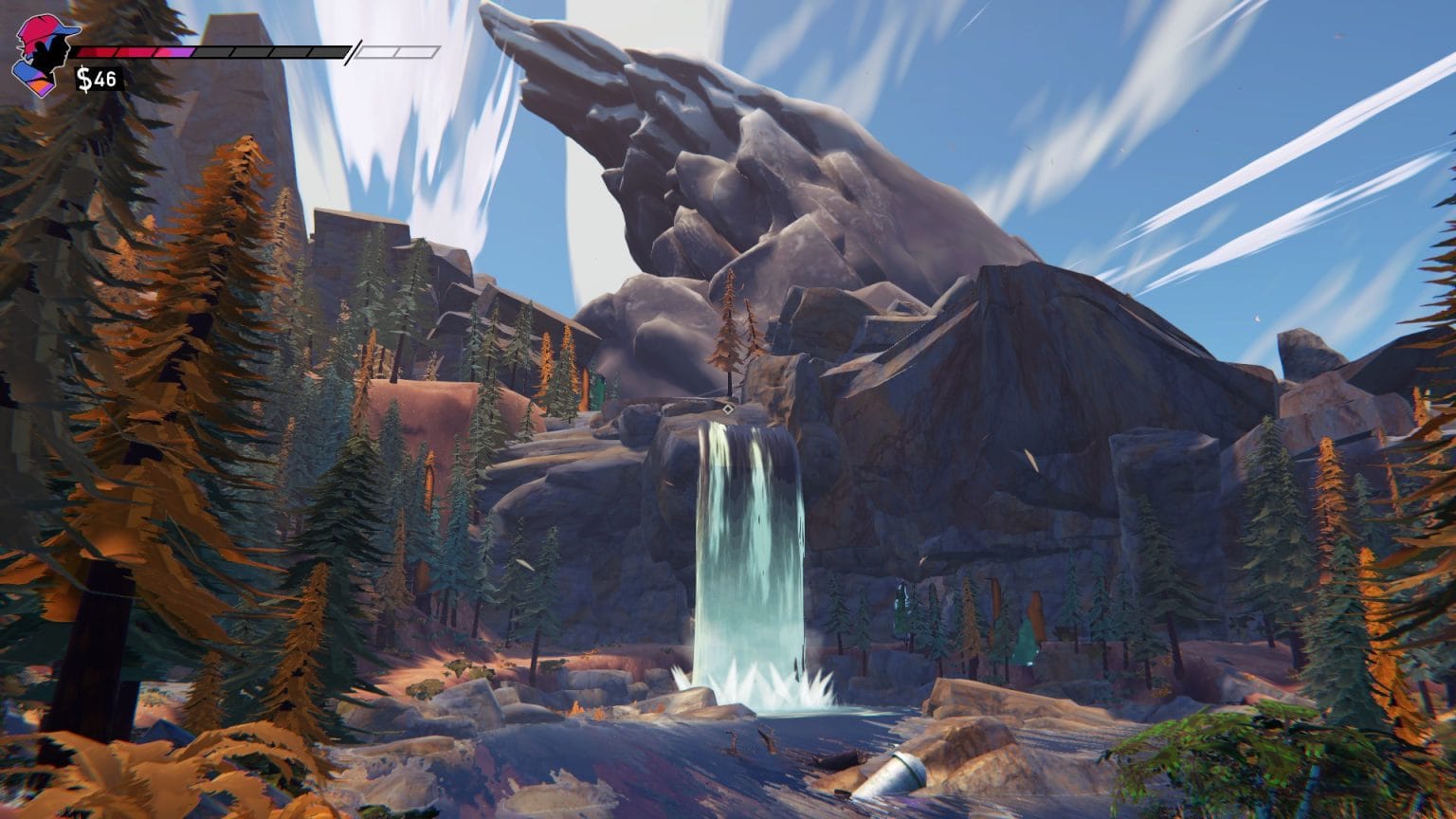






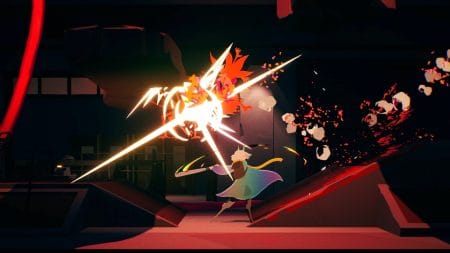


wow what a complex batch of ideas… great summaries and weaving together to make it make sense! thinking of trying it!